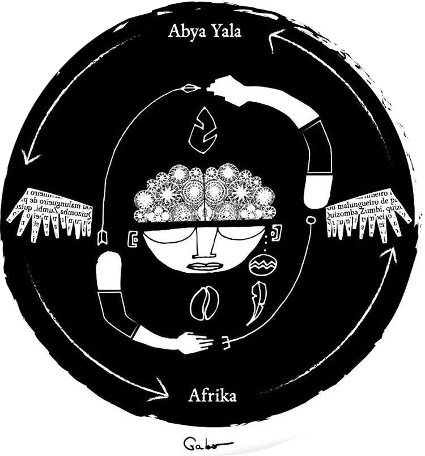ABYA YALA AND THE FLOWERING COMMUNITY:
decoloniality and the community process
Keywords:
Decoloniality; Community; Modernity; Walter Mignolo.Abstract
This article try to establish a certain relationship between community and studies on decoloniality. Jacques Rancière (2009) and Georges Bataille (1992) understand the community as a relationship of sharing experiences. The Modernity/Coloniality group in order to put tension on the relations of colonial exploitation that designed the logic of modernity, rescued visions of knowledge that were left at the margin of modern history. The idea of naturalizing a different form of knowledge where interpretations of the world start from experience, it subverts the logic of a positive knowledge in which the coloniality of power, knowledge and being, induces in the lives and actions of society. As an alternative to this particular situation of control, communal doing that is based on the frontier of knowledge contributes to establishing other contacts and generating sharing among people, linked no longer by a constitution, but above all by inner experiences.
References
BATAILLE, Georges. A experiência interior. São Paulo: Editora Ática, 1992.
ESPOSITO, Roberto. Communittas: origen y destino de la comunidadla. Buenos Aires: Amorrortu, 2003.
MIGNOLO, Walter. Desafios decoloniais hoje. Epistemologias do Sul: Pensamento Social e Político em/desde/para América Latina, Caribe, África e Ásia, Foz do Iguaçu, v.1, n° 1, p. 12-32, 2017.
NANCY, Jean-Luc. A Comunidade Inoperada. Rio de Janeiro: 7letras, 2016.
RANCIÈRE, Jacques. A partilha do Sensível. São Paulo: Editora 34, 2009.
RESTREPO, Eduardo; ROJAS, Alex. Inflexión decolonial: fuentes, conceptos y cuestionamientos. Popayán: Editorial Universidad del Cauca, 2010.
Downloads
Published
How to Cite
Issue
Section
License
Copyright (c) 2021 Communitas

This work is licensed under a Creative Commons Attribution-NonCommercial-ShareAlike 4.0 International License.
The Copyright for articles published in this magazine belongs to the author, preserving the rights of first publication for the Communitas Magazine. Because they appear in this publicly accessible journal, the articles are free to use, with their own attributions, in educational and non-commercial applications.




